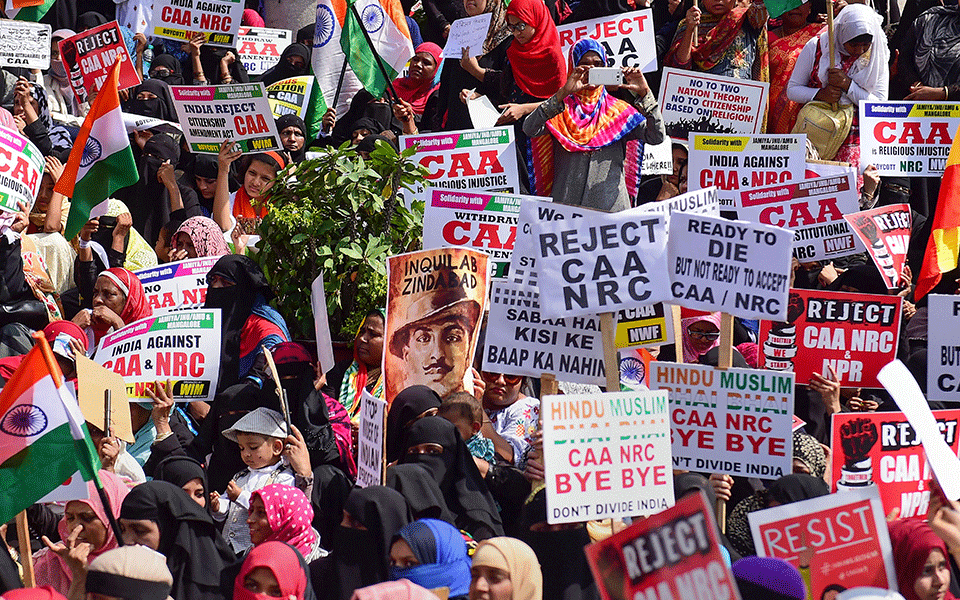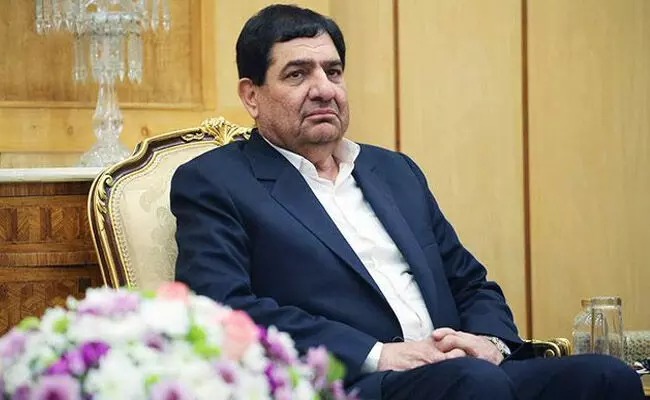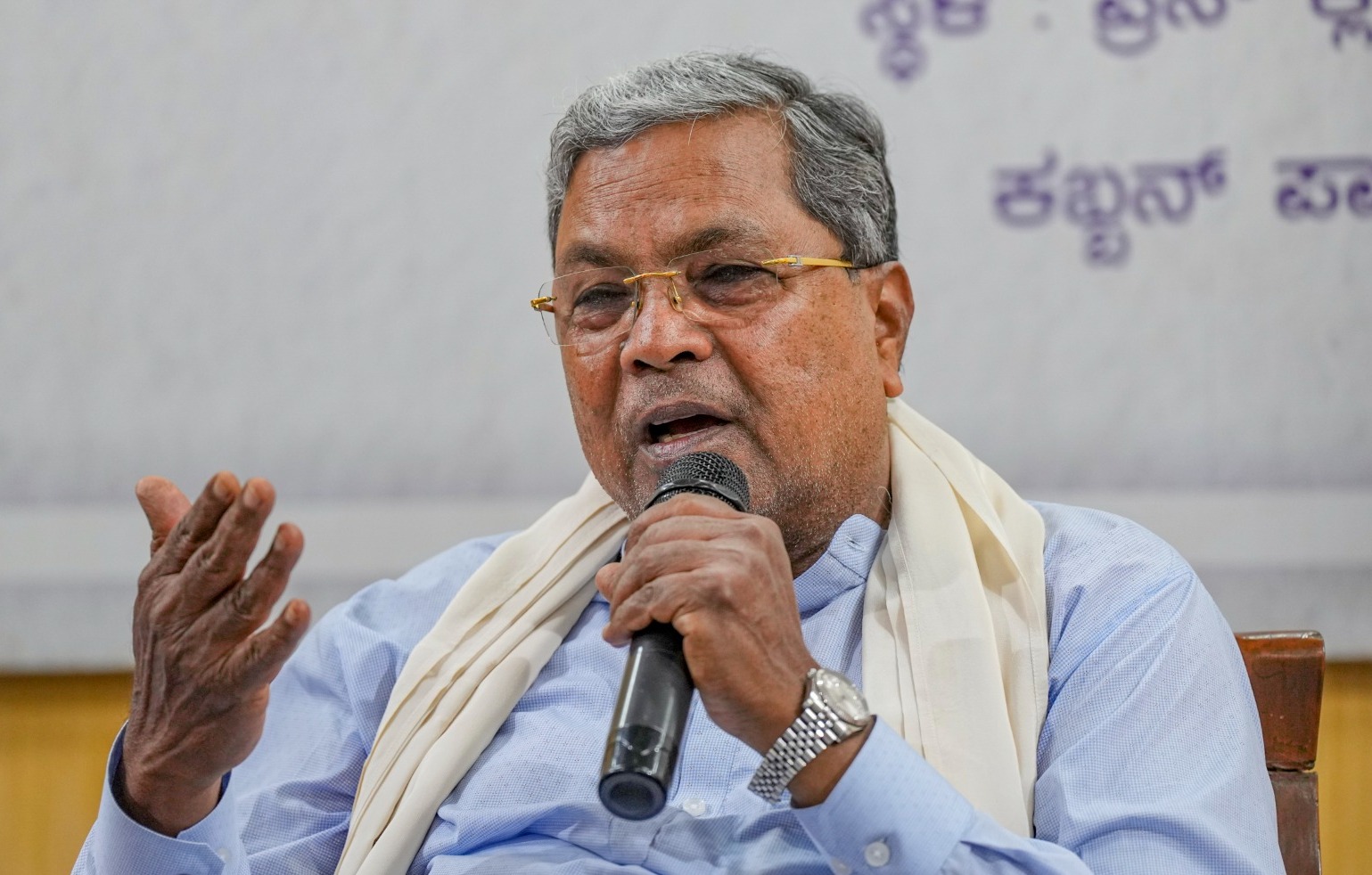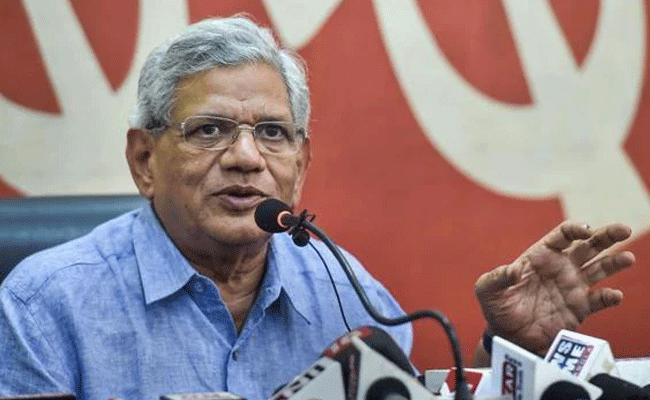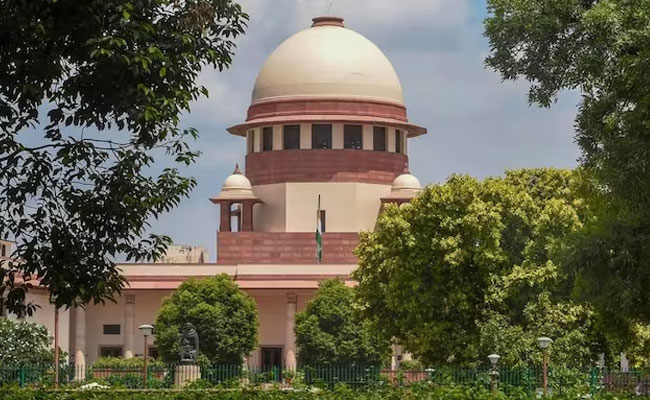New Delhi: The central government has sought an extension till January 9 for framing rules of the Citizenship Amendment Act (CAA), which was passed by Parliament in 2019, Minister of State for Home Affairs Nityanand Rai informed Lok Sabha on Tuesday.
He was replying to a question from Congress MP Gaurav Gogoi on whether the government had missed the deadline to frame and notify CAA rules and the steps taken in this context.
"The Citizenship (Amendment) Act, 2019 (CAA) has been notified on 12.12.2019 and has come into force w.e.f. 10.01.2020, the minister said.
"The Committees on Subordinate Legislation, Lok Sabha and Rajya Sabha have been requested to grant further extension of time upto 09.01.2022 to frame the rules under the Citizenship (Amendment) Act, 2019," Rai said.
The CAA envisages to grant Indian nationality to persecuted non-Muslim minorities of Pakistan, Bangladesh and Afghanistan.
This is the fifth extension sought by the government for framing of these rules.
According to the Manual on Parliamentary Work, the rules for any legislation should have been framed within six months of presidential assent or seek extension.
The objective of the CAA is to grant Indian citizenship to persecuted minorities like Hindus, Sikhs, Jains, Buddhists, Parsis and Christians from Pakistan, Bangladesh and Afghanistan.
Those from these communities who had come to India till December 31, 2014, facing religious persecution there, will not be treated as illegal immigrants but given Indian citizenship.
After the CAA was passed by Parliament, widespread protests were witnessed in different parts of the country leading to deaths of nearly 100 people in police firing and related violence.
Let the Truth be known. If you read VB and like VB, please be a VB Supporter and Help us deliver the Truth to one and all.
Dubai (AP/PTI): Iran's first Vice President Mohammad Mokhber was appointed as acting president of the Islamic Republic on Monday after the death of President Ebrahim Raisi in a helicopter crash in the country's northwest.
Raisi's death under the constitution thrust Mokhber into public view. He is expected to serve as caretaker president for some 50 days before mandatory presidential elections in Iran.
Iran's supreme leader Ayatollah Ali Khamenei made the announcement of Mokhber's appointment in a condolence message he shared for Raisi's death in the crash Sunday. The helicopter was found Monday in northwestern Iran.
Despite his low-key public profile, Mokhber has held prominent positions with in the country's power structure, particularly in its bonyads, or charitable foundations.
Mokhber oversaw a bonyad known in English as the Execution of Imam Khomeini's Order, or EIKO, referring to the late Supreme Leader Ayatollah Ruhollah Khomeini.
The US Treasury said the organisation oversaw billions of dollars in assets as “a business juggernaut under the direct supervision of Supreme Leader Ali Khamenei that has a stake in nearly every sector of the Iranian economy, including energy, telecommunications, and financial services”.
“EIKO has systematically violated the rights of dissidents by confiscating land and property from opponents of the regime, including political opponents, religious minorities, and exiled Iranians,” the Treasury said in 2021 in sanctioning Mokhber. The European Union also had sanctioned Mokhber for a time with others over concerns then about Iran's nuclear programme.
As the head of EIKO, Mokhber oversaw an effort to make a COVID-19 vaccine during the height of the pandemic, pledging to make tens of millions of doses.
Mokhber previously worked in banking and telecommunications. He also worked at the Mostazafan Foundation, another bonyad that's a major conglomerate that manages the country's mega-projects and businesses. While there, he found himself entangled in a bitter legal dispute between mobile phone service providers Turkcell and South Africa's MTN over potentially entering the Iranian market.
Iranian media reports suggest Mokhber, who holds a doctorate in international law, was crucial in Iranian efforts to bypass Western sanctions on its oil industry.
Mokhber has been a member of Iran's Expediency Council since 2022, which advises the supreme leader, as well as settles disputes between parliament and the Guardian Council, Iran's constitutional watchdog that also oversees the country's elections.
Mokhber was born Sept 1, 1955, in Dezful in Iran's southwestern Khuzestan province to a clerical family. He served as an officer in the Revolutionary Guard's medical corps during the 1980s Iran-Iraq war, according to the pressure group United Against Nuclear Iran.
“Mokhber used the vast wealth accumulated by EIKO — at the expense of the Iranian people—to reward regime insiders like himself,” UANI said. “Managing the patronage network endeared him to the supreme leader, but at a cost.”

